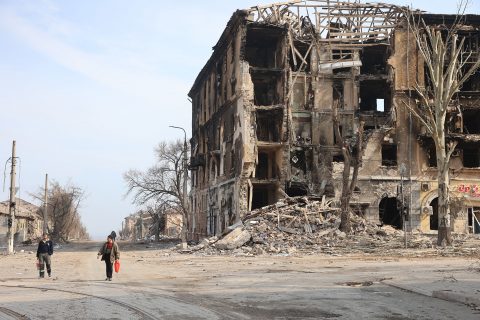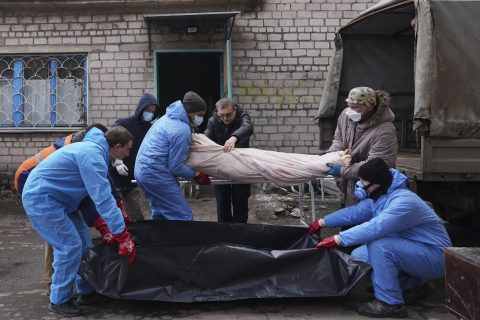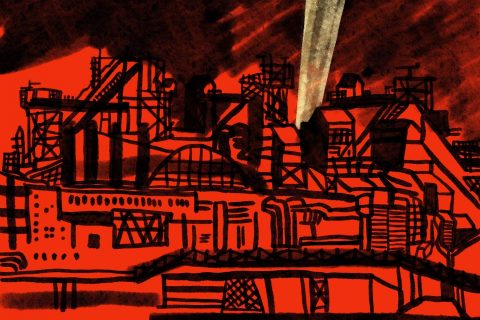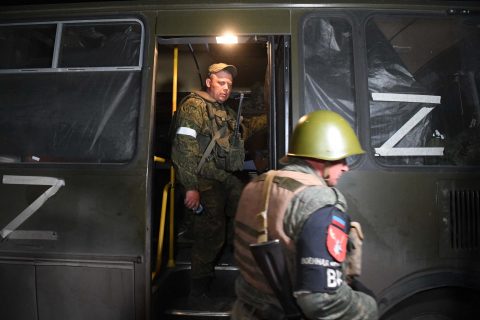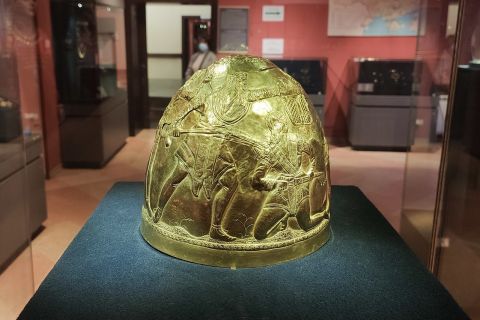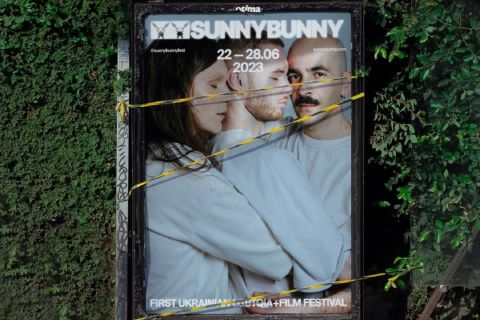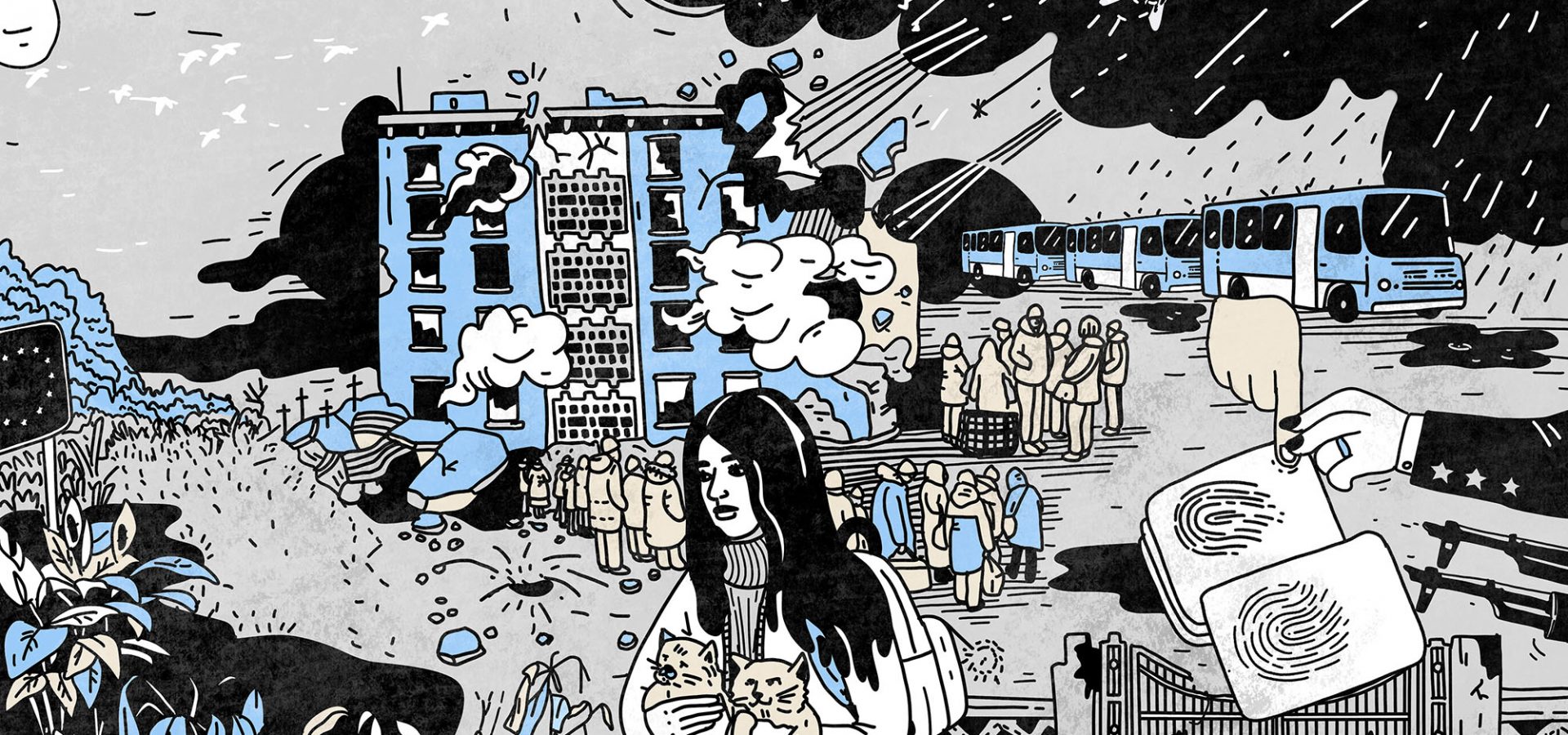
Hell — Camp — Freedom. A Month-long Mariupol Escape Story
A 17-years-old Sonia was born and raised in Mariupol. Together with her boyfriend, she didn’t plan on leaving the city till the last minute, even when it started getting bombed. When the missile hit Sonia’s house, she fled, managing to grab only a cellphone and two cats. It took her almost a month to find a safe place. During this time, a girl went through the filtration camp, found out about the death of a close friend, and managed to escape the temporary point of stay in Astrakhan, finding herself in Europe. Sonia told us a story of her trip.
“We were alright”
I am 17, my boyfriend Dania is three years older. Before the war, I was a nail artist. We were alright: I had a lot of clients, and in winter my boyfriend and I bought an apartment.
When the war started, we didn’t leave the city till the last moment. First of all, it was scary — people were shot right on the street, the troops fired at the wheels of cars, driven by people trying to escape. Secondly, my boyfriend’s father was against it. He said it was unreasonable to go anywhere — we have a roof over our head, the windows and walls are intact. But it got steadily worse each day: bombardment, shootings, fires. A two-metre deep pit appeared outside our house.
At the end of March, our house got hit by a missile. Our new apartment, which we bought in a block of flats where my boyfriend’s parents lived, was damaged. I barely managed to took my cats out of the burning building. It became obvious that we should leave.
At first, we wanted to flee at night, but the Ukrainian military who were settled in the nearby apartment told us that in the darkness, snipers fire at anything that glows. So we had to wait till the morning.
I heard on the radio that there was a point somewhere in the city, from which the residents of Mariupol were taken away by bus. I didn’t know whether it was true, but we decided to take a risk. There were four of us: me, Dania, his father and his granny. I took a cellphone, a charger and two cats with me. My mom and granny lived in the other part of Mariupol, so we couldn’t take them with us. To be honest, I didn’t even know whether they were still alive — I couldn’t reach them for a few days.
The collection point was heaving with people. In order to take a bus, we had to wait for four hours.
A line to the interrogation
It turned out that it was only possible to leave the city for the DNR territory. We were taken to Prymorske village. There we spend over a day in the transit point in one of the local schools. There were lots of people, I guess, more than a thousand. From Prymorske we were taken to Donetsk, where they put us in a filtration camp. It was located in one of the schools, and we spent ten days there.
Every day was like another: woke up, ate, walked around the territory, ate, went to sleep. Internet was hard to reach, and it wouldn’t work everywhere.
We were fed twice a day — in the morning and in the evening. Lunch was available only for kids. At first, the food seemed alright: oatmeal with eggs for breakfast, pasta with chicken for dinner. But it was impossible to even look at this food after a few days of such repetitive meals. During the times we stayed there, a few people got food poisoning, the ambulance took one girl to the hospital.
We got humanitarian aid — second-hand clothes, soap. We could buy products in the small shop near the school. You could pay in hryvnas and get change in rubles. But we were scrimping and saving, so that we didn’t buy anything.
Sometimes there were visitors in the camp. At first, the woman clad in military uniform came telling how great it was to live in DNR and if we didn’t like something, we could always return to Mariupol. People were scared to argue with her or to give their opinion.
The woman clad in military uniform came telling how great it was to live in DNR and if we didn’t like something, we could always return to Mariupol.
Then journalists wanting to “know the truth” came to the school. We weren’t allowed to refuse getting interviewed. Journalists asked us about the displacement of military vehicles and about the Ukrainian soldiers. Meanwhile, they didn’t even have the cameras, nor mics or voice recorders.
Finally, our turn came to the filter camps. It took place in one of the police department of Donetsk. We were interrogated by a woman, asking everyone the same questions: whether we have acquaintances in the Armed Forces and in the Azov Battalion, whether we saw the displacement of Ukrainian equipment. She asked insistently, digging into the details. At the same time, she behaved in a rude manner, especially with Dani’s grandmother, who sat in the basement for almost the whole war. Hearing about the basement, the woman said: “I sat in the basement for eight years, and it’s okay.”
Before the interrogation, I cleared my phone’s memory: deleted chats in Ukrainian and conversations with a friend where I spoke about Russia and the war. I didn’t know anything about the military displacement, so I had nothing to hide.
Taganrog. Railway station. Astrakhan
On April 4, we were put on the bus again and brough us towards the russian border. Nobody, even the driver, knew where exactly we were heading. It turned out, we were taken to Taganrog, right to the railway station.
We arrived there at midnight. Near the train, the train attendant said that we have two options: either go with the rest of Mariupol residents to Astrakhan or follow our own route. In the first case, we were promised food, temporary housing and one-time financial assistance. In the second, we had to take care of everything ourselves. Four of us together had only 30 thousand hryvnias. We could not change them in Taganrog, because local money changers did not take Ukrainian money. There was no choice — I had to go to Astrakhan. The road took a day and a half.
In Astrakhan we were greeted like celebrities: a bunch of journalists on the platform, cameras, microphones. It was unpleasant. The Russians came to our country, destroyed my city, ruined everything, and now they are trying to show everything in such a way as if they are saving us. I sank into the hood to cover up my face so as not to get in the frame or in the photo. Later, I saw myself in a photo in a story about how Astrakhan helps refugees.
In Astrakhan we were greeted like stars: a bunch of journalists on the platform, cameras, microphones.
We were settled in a point of temporary accommodation (PTA). It was in the Astrakhan region, in the kids camp “Astrakhan Stars”. We were given a room — not a hotel, but bearable. After getting some sleep, we began to go through the paperwork. To be honest, I don’t remember what documents I signed, I was tired after a day and a half on the train. At one point, I decided to apply for Russian citizenship, but changed my mind — I did not want to give my Ukrainian passport. We were given bank cards of the Mir system, where 10,000 rubles of one-time financial assistance were supposed to be deposited.
Escape
My grandmother got in touch in early April. She miraculously got out of Mariupol, but my mother could not — she died from the wreckage. Neighbors buried her in the backyard.
When I found out about this, I got furious and realized that I did not want to stay in Russia, not for a single moment. The problem was that my boyfriend’s father was a supporter of the “Russian world” (Russkiy Mir). He does not like Ukraine, and he was against me and Dania leaving Russia, especially for Europe. He would not give us money for such a trip.
My boyfriend’s father is a supporter of the “Russian world”. He does not like Ukraine and was against Denmark and me leaving Russia.
After giving thorough study, I realized that I needed to go to Estonia. I found several volunteers who bought me and my boyfriend tickets to St. Petersburg. Once again, we spent a day on the road. In St. Petersburg, a man met us and drove to Ivangorod. It was scary to cross the Russian checkpoint: I was afraid that I, a minor, would not be allowed to leave. But we succeeded. At the end, the woman at the border crossing point said that we shall return.
New life in Germany
It was nice in Estonia, but the weather was cold, so we decided to move on to Europe. After speaking with other Mariupol residents, I found out that Germany took good care of refugees. Volunteers dissuaded us, saying that the country was crammed, but we have already made a decision. After exchanging the money I received from a volunteer back in Astrakhan, I bought tickets to Tallinn.
We arrived in Germany on April 29, almost a month after we got out of Mariupol. Dani, cats and I now live in the house of a German family in Karlsruhe, which I found on a volunteer site. The Germans treat us well. They say we can stay at their place as long as we want, and they even presented me with a laptop. We applied for registration, and are now studying the language, looking for a job. I would like to work as a nail artist in Germany, but I do not have money to buy the necessary tools. So the plan so far is to learn the language, find a job in a beauty salon, and then apply for university. One thing I know for sure is that we are staying in Germany.
My grandmother is now in Khabarovsk, and she likes it there. She has nowhere to return: her house in Mariupol is completely burned down with all her papers.
It was difficult to part ways with Dania’s family. When they found out that we had bought tickets to Europe, they were upset. Dania’s father still says that Europe is rotting and that Russia shall prosper.
They still didn’t receive ten thousand rubles of one-time assistance. In order to earn at least something, Dania’s father works in crops in the Astrakhan region for 1 thousand rubles a day (about 500 hryvnias). His grandmother got a job at the camp canteen. She gets paid even less. Despite our differences, we keep in touch. I think they are glad that we are all right.
Illustration: Ira Romb
